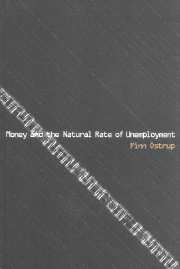Book contents
- Frontmatter
- Contents
- Preface
- Part I Introduction and main assumptions
- Part II The impact of monetary policy and inflation
- 4 Imperfect integration of securities markets
- 5 Monopolistic competition in bank markets
- 6 Utility from securities holdings
- 7 Hysteresis effects from monetary policy
- 8 The impact of inflation on bank earnings
- Part III The impact of monetary regimes
- Part IV Policy implications
- Appendix: Microeconomic foundations
- Bibliography
- Index
5 - Monopolistic competition in bank markets
Published online by Cambridge University Press: 22 September 2009
- Frontmatter
- Contents
- Preface
- Part I Introduction and main assumptions
- Part II The impact of monetary policy and inflation
- 4 Imperfect integration of securities markets
- 5 Monopolistic competition in bank markets
- 6 Utility from securities holdings
- 7 Hysteresis effects from monetary policy
- 8 The impact of inflation on bank earnings
- Part III The impact of monetary regimes
- Part IV Policy implications
- Appendix: Microeconomic foundations
- Bibliography
- Index
Summary
Introduction
This chapter examines the impact of monetary variables on natural production in a model setting based on rational expectations and full price and wage fiexibility when the wage setting implies a relationship between the real wage and employment, for example, in the case of a monopoly trade union which sets the wage, and when part of financial intermediation takes place through banks. The markets for bank deposits and bank lending are characterised by imperfect competition. The banks have access to investing and borrowing in a market for external finance. It is assumed that this market, termed the securities market, is internationally integrated, the interest rate being determined through uncovered interest rate parity. The chapter demonstrates that inflation and the central bank's reserve policy have an impact on production if one of the following three conditions is met: (i) the bank faces a cost when raising external finance through the internationally integrated securities market, (ii) the bank has preferences with respect to the choice between placing in securities or increasing bank lending, or (iii) there are economies of scope between deposit taking and bank lending. Natural production is furthermore affected by currency restrictions and restrictions on lending.
The basic working of the model can be explained as follows. Legal tender and bank deposits are substitutes in the investor's portfolio.
- Type
- Chapter
- Information
- Money and the Natural Rate of Unemployment , pp. 102 - 127Publisher: Cambridge University PressPrint publication year: 2000



